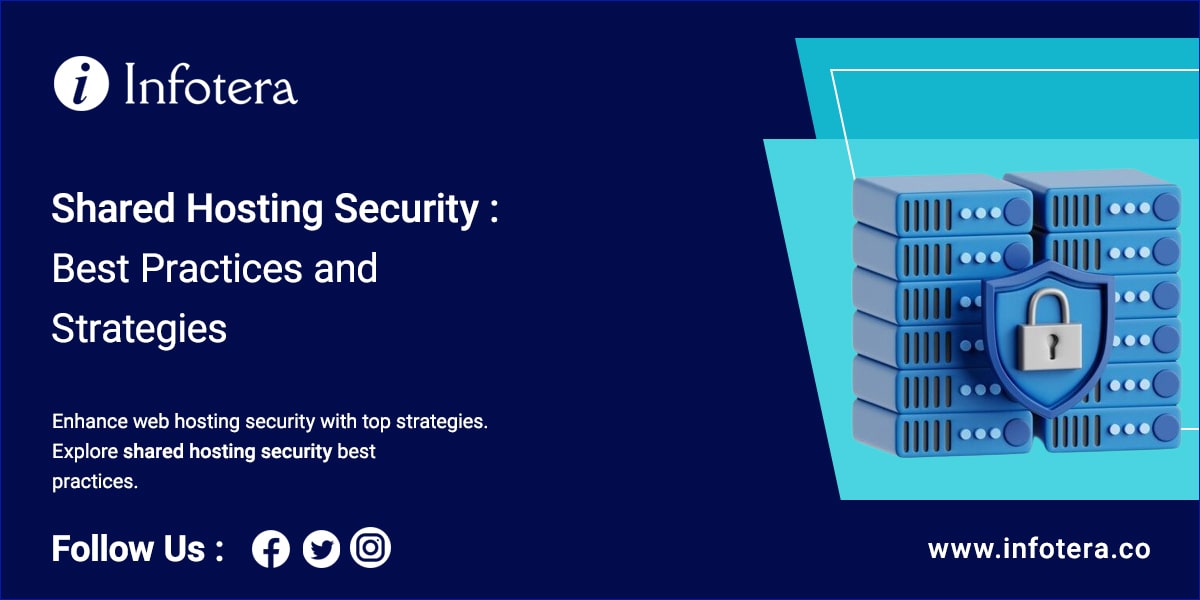In today’s digital landscape, website security is paramount, especially in shared hosting environments where multiple websites share resources on a single server. This article delves into the best practices and strategies for enhancing shared hosting security to protect your online assets from potential threats.
Understanding Shared Hosting Security
Shared hosting is a type of web hosting where multiple websites are hosted on the same server, sharing resources such as CPU, RAM, and disk space. While cost-effective and easy to manage, shared hosting security challenges as vulnerabilities in one website can affect others hosted on the same server.
Common Security Risks in Shared Hosting
Shared hosting environments are susceptible to various security risks, including malware infections, cross-site scripting (XSS) attacks, and data breaches. Hackers may exploit vulnerabilities in outdated software or weak passwords to compromise websites hosted on shared servers.
Best Practices for Enhancing Shared Hosting Security
Implementing robust shared hosting security measures is crucial to mitigating risks and safeguarding your website in a shared hosting environment. Some best practices include:
Use of Strong Passwords: Encourage users to create complex passwords and implement password policies to prevent unauthorized access.
Regular Software Updates and Patches: Keep all software, including content management systems (CMS) and plugins, up to date to patch known vulnerabilities and security flaws.
Implementing SSL Certificates: Secure data transmission between the server and visitors’ browsers with SSL/TLS encryption to prevent the interception of sensitive information.
Utilizing Web Application Firewalls (WAF): Deploy WAF solutions to filter and monitor HTTP traffic for malicious activity, protecting against common web-based attacks.
Performing Regular Backups: Regularly backup website data to ensure quick recovery in case of data loss or security incidents.
Advanced Strategies for Improved Security
In addition to basic security practices, consider implementing advanced strategies to further enhance shared hosting security:
- Intrusion Detection Systems (IDS): Deploy IDS solutions to detect and respond to unauthorized access attempts and suspicious activities on the server.
- Security Monitoring and Logging: Monitor server logs and security events for anomalies, providing insights into potential security threats and breaches.
- Two-Factor Authentication (2FA): Require users to authenticate using a second factor, such as a mobile app or SMS code, to add an extra layer of security to account logins.
Ensuring Compliance and Regulation Adherence
Adhering to regulatory requirements, such as the General Data Protection Regulation (GDPR) and California Consumer Privacy Act (CCPA), is essential for shared hosting providers. Implement data protection measures and privacy policies to ensure compliance with relevant regulations and protect user data.
Educating Users on Security Best Practices
Educating users about security best practices is critical for maintaining a shared hosting environment. Provide resources and training materials to help users understand the importance of security measures such as password hygiene, software updates, and data protection.
Choosing a Secure Hosting Provider
When selecting a shared hosting provider, consider factors such as security features, reputation, and customer support. Choose a provider that prioritizes security and offers proactive measures to protect websites hosted on their servers.
Conclusion
Enhancing shared website hosting requires a multi-layered approach, combining fundamental security practices with advanced strategies and user education. Website owners can mitigate security risks and safeguard their online presence by implementing robust security measures, adhering to regulatory requirements, and selecting a reputable hosting provider.
